Crossbench in revolt as Labor and Coalition reach agreement to restrict political donations and spending
Independent MPs and senators are irate as the major parties ice them out of a deal to limit election spending and big donors.
National
Don't miss out on the headlines from National. Followed categories will be added to My News.
Labor and the Coalition have teamed up to stop billionaire donors pouring unlimited cash into political campaigns and rein in teal candidate funding vehicles like Climate 200 in a deal that has enraged independent MPs.
The government and opposition agreed to pass sweeping electoral reforms that will end Australia’s current system of limitless donations, but preserve large spending allowances for parties in a move criticised by crossbench politicians as a “stitch up,” “dodgy” and “an affront to democracy”.
The “teal” MPs, regional and suburban independents, senators Jacqui Lambie, David Pocock, Tammy Tyrrell and the Greens were in furious agreement the deal announced late on Wednesday was designed to maintain major-party dominance in Australian politics.
But Labor has argued the changes would ensure Australia did not end up in a political spending “arms race” and prevent a handful of wealthy individuals from unduly influencing who is elected to parliament.
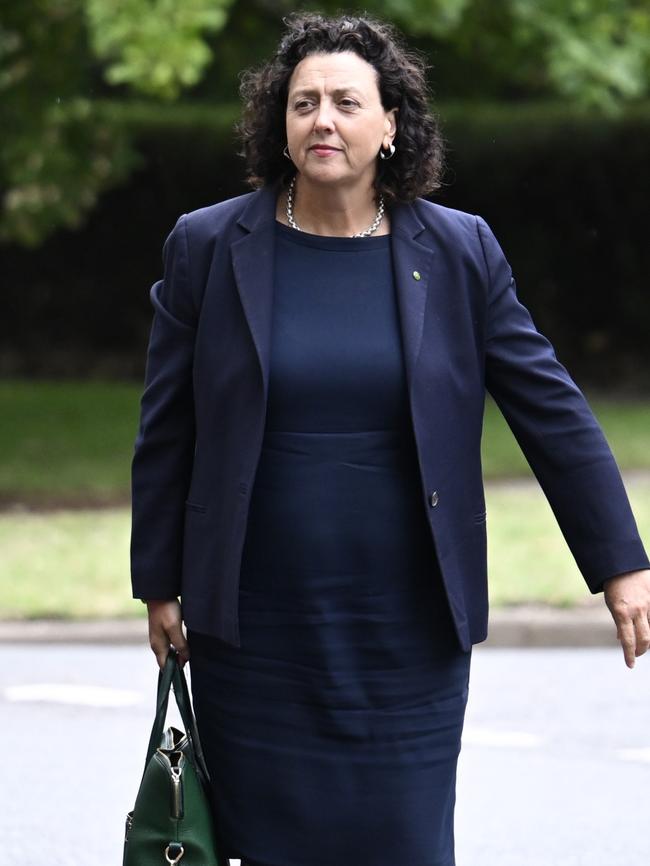
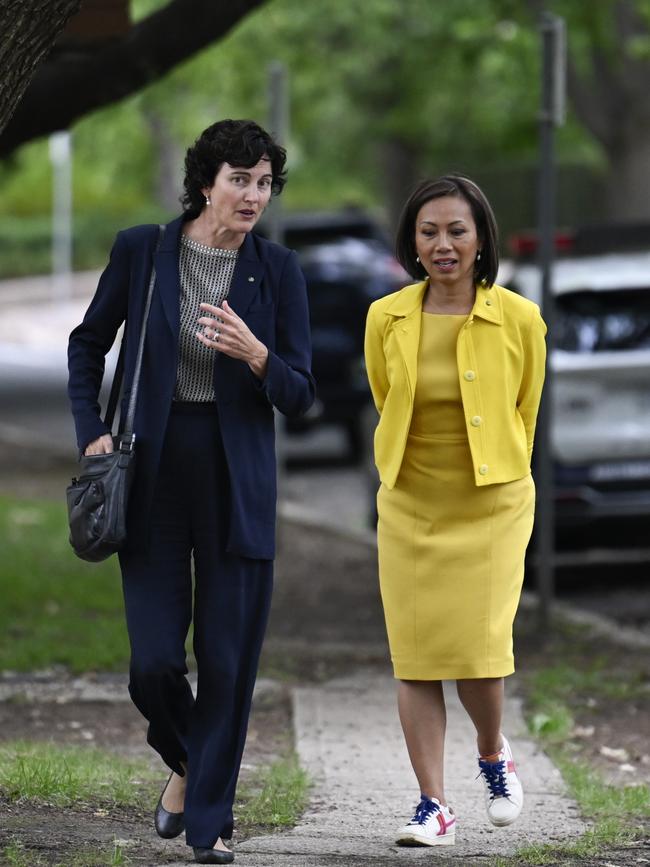
Under the changes to Labor’s proposal agreed to by the Coalition, the maximum donation a candidate can accept from any individual source will be limited to $50,000.
Donors will be limited to giving no more than $1.6 million nationally in a calendar year, but this would be restricted to no more than $250,000 in any one state or territory.
Donations and spending will remain unlimited for the looming 2025 election, but from July next year the total amount a lower house candidate will be able to spend in one seat will be capped at $800,000.
But political parties will still be able to spend up to $90 million nationally on noncandidate specific material.
The reforms will prevent a repeat of billionaire Clive Palmer’s United Australia Party spending more than $123m, and smash the model used by the Simon Holmes A Court-backed Climate 200 group that centrally receives donations and then distributes large contributions to selected “teal” candidates.
Under the changes, all donations of $5000 and above will be reported publicly in real time, meaning Australians will have significantly more information about who has funded a candidate or party before they vote.
Currently the public reporting threshold is set at donations of $16,900 or above, and the identities of donors are only disclosed annually.
To make up for some of the potential fundraising shortfall, the bill also dramatically increases public funding, lifting the taxpayer money per vote from $2.91 to $5.
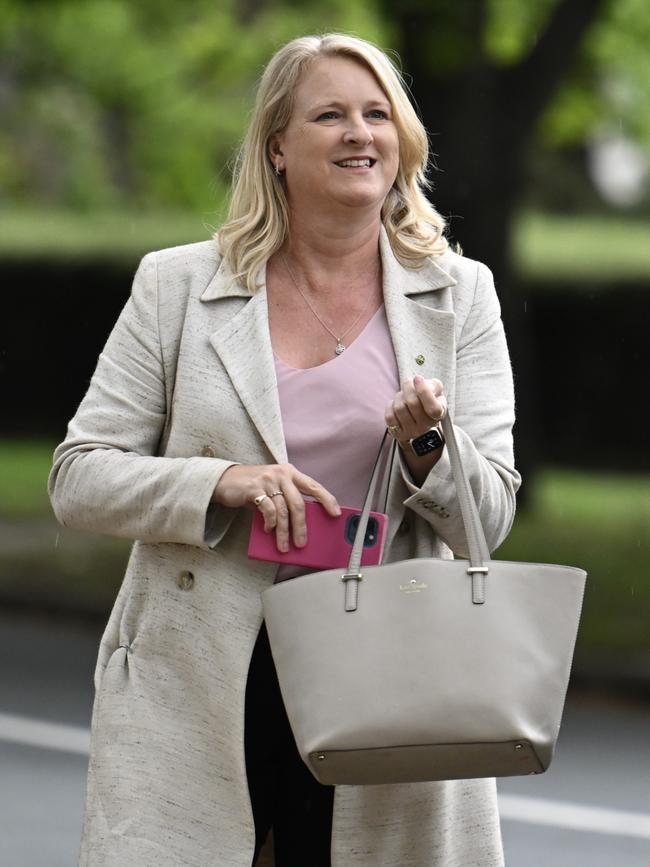
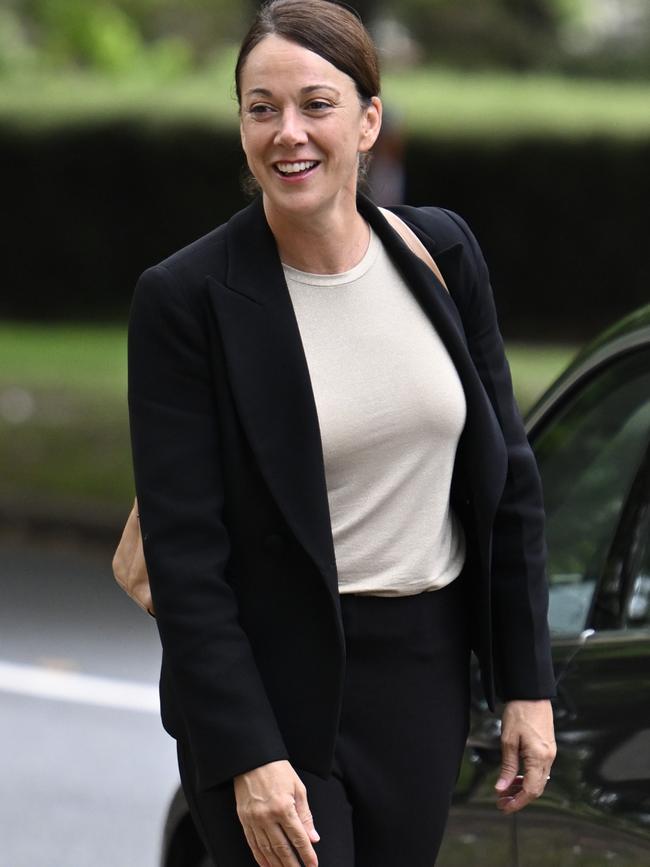
After the 2022 election Labor and the Coalition both received about $57.3m in public funding based on their share of the vote, which would mean with a similar result in 2028 the major parties would share in an estimated $140m in taxpayer dollars.
Standing alongside the majority of crossbench MPs on Wednesday, Curtin MP Kate Chaney said the reforms meant taxpayers would “pay more for less choice”.
“If the major parties get together like this to stitch up future competition, then the Australian people will have to speak to them in the only language they understand, and that’s votes,” she said.
Ms Chaney said spending should be linked to donations, arguing if “a million people decide to give me $10 each … why should I not spend it?”
Greens Senator Larissa Waters said the major parties were “agreeing on rigging the system to lock out their competitors”.
Goldstein MP Zoe Daniel said under the new rules, all an independents' campaign materials would count towards the cap, while major party branding would not.
“This deliberate imbalance ensures that Labor and the Coalition maintain a financial stranglehold over elections,” she said.
Tasmanian Senator Tammy Tyrrell described the reforms as a “wolf in sheep’s clothing”.
“Caps on individual candidate campaigns mean nothing when they don’t apply to the parties,” she said.
“Caps on donations don’t address money funnelled to parties through fundraiser dinners and membership fees.”
Crossbench slam ‘dodgy deal’
Independent MPs and senators were iced out of the deal to slash how much money politicians and parties can receive from a single source and cap campaign spending.
Crossbenchers have been railing against the major parties excluding them from a deal, which was finalised only hours before many independent and teal MPs attended a drinks event hosted by Anthony Albanese at the Lodge on Tuesday night.
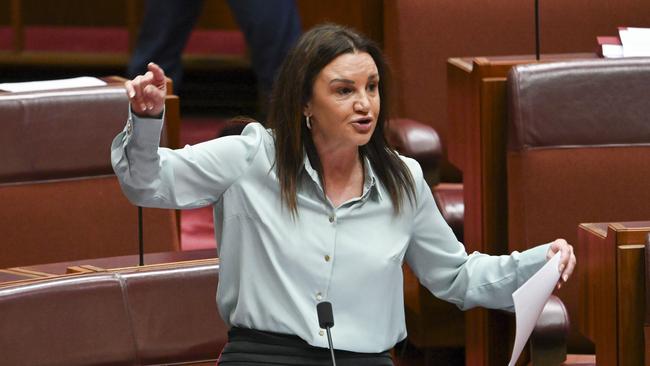
Earlier this week Tasmanian Senator Jacqui Lambie used a speech to criticised what she called a “dodgy deal” between Labor and the Coalition.
“It’s the only time you will see the major parties working together and vote together,” she said.
“And it’s not to protect you Australians, it is the feather their own nests.”
Ms Lambie said it was “rubbish” for the Albanese Government to suggest they were consulting with the crossbench on the bill, revealing “they were not”.
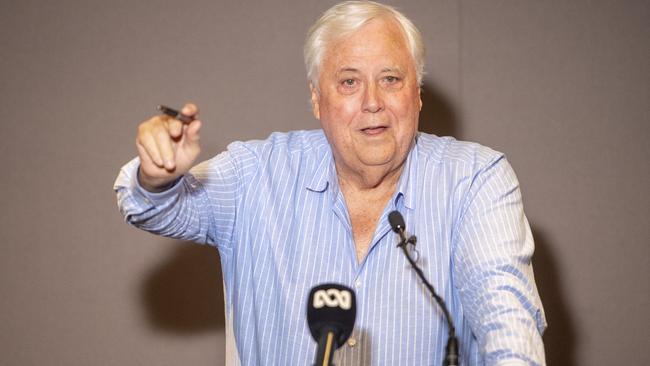
PM says current donation laws ‘defies our democracy’
In the 2022 election Mr Palmer spent about $123 million on his United Australia Party campaign, and while he only gained one senate seat in the process, Labor’s overhaul of the election funding was largely designed to prevent this level of singular influence.
Mr Palmer has already flagged his intention to challenge any finalised reform plan in the High Court, arguing the proposal was “designed to rig elections”.
The Prime Minister said on Wednesday that his Special Minister of State Don Farrell was continuing to have meetings “right across the parliament” with the Coalition and crossbenchers on the reform proposal.
“I think all of the political parties have a look at the way that the system’s been operating, where one individual can spend $100 million on a campaign, as we’ve seen, is something that defies our democracy because not everyone can do that and that’s a distortion,” he said.
More Coverage
Originally published as Crossbench in revolt as Labor and Coalition reach agreement to restrict political donations and spending





